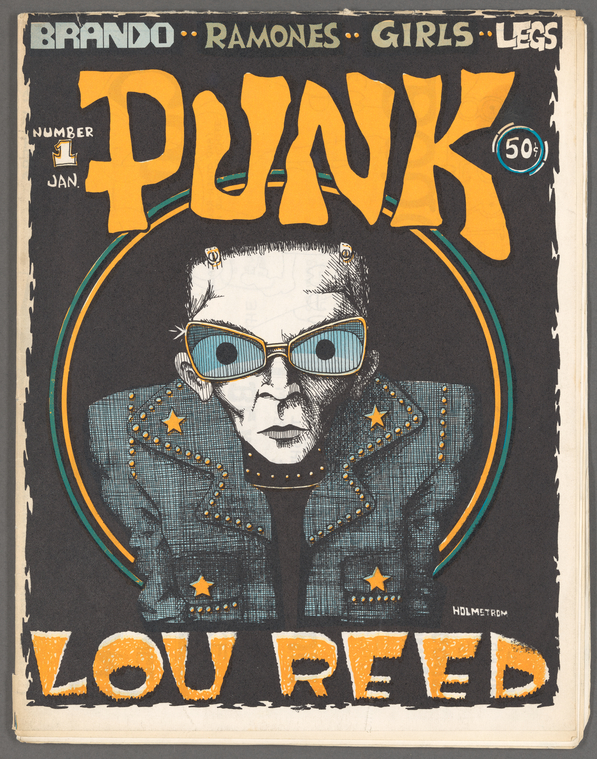Lou Reed Can Do Lou Better Than You

Featured on the cover of Punk Magazine issue Number 1, January 1976, Lou Reeds championing of the oddballs, freaks, and users, in addition to the then marginalized and nascent Queer community earned him much respect in those communities. Songs like "Walk on the Wild Side", Velvet Underground mainstays "Candy Says", "Heroin", and "Sister Ray", and the entirety of Berlin, feature stories of people and perspectives that were then rare or non-existent in popular music - stories that spoke to the unconventional lives in New York City and across the world that would give rise to Punk Rock in the late '70s.
(Salvatore Mercuri Velvet Underground collection)
In 1978, following two years of moderate commercial success in Coney Island Baby (1975) and Rock and Roll Heart (1976), Reed released two of albums that, more than any other, capture his love for raw, immediate, and unadulterated energy. In February 1978 Reed released his most stripped down album yet, Street Hassle, once more brought his poetry to the complicated and ugly sides of sex, drugs, and... well... Rock and Roll. Recording for Street Hassle started as a live album with a muted audience but was continued in the studio, resulting in an album with fairly invisible production.
Lou Reed would support this album with a 6 month tour which began with opener Ian Dury & the Blockheads with their then hit song "Sex & Drugs & Rock & Roll", a group considered largely influential to early Punk Rock and New Wave musicians. During this tour, across 5 nights and at least 10 sets in May 1978, Reed recorded Live: Take No Prisoners (1978) which was released that November. This time a proper live album with the audience intact, it is Reed's banter with the crowd that makes Live: Take No Prisoners a unique live album.
This stage persona for many cemented Lou Reed's place in Punk Rock history. It was a topic that would crop up in interviews for the rest of his life.
In a May 1989 interview with Kurt Loder, Reed said:
I became aware of Punk when someone called me the Godfather of Punk. Some English journalist... when we talk of loathsome we usually mean English journalists.
At a October 1977 Christchurch, New Zealand press conference, on Punk Rock and it's being "aggressive", Reed replies:
I don't agree to that. You mean like getting the audience really going so that they burn down the governmental palace? I don't know anybody who's into that. Nobody I know. It's a fun theory... it sounds good... but ultimately you just want to get off.
I think the Sex Pistols are gunna be big. Really, really huge. I've only heard one record of theirs but it's really great. I don't like any of the other ones, but I like the Sex Pistols.
In a 2002 episode of Bravo's Musicians, host David Wild asks Reed if he accepted the title of "the godfather of punk", to which he simply said replied:
I don't have a choice in these things.
Live: Take No Prisoners
Lou Reed Takes No Prisoners
We are fortunate to have in the Lou Reed Papers recordings from each of Lou Reed's 5 nights at the Bottom Line featured in Live: Take No Prisoners (1978). These recordings were made by Lou Reed and they cover all or most of the sets he did. What was commercially released was an assemblage of recordings taken from throughout the run.
What this album is most known for is less his music and more Lou Reed's stage banter - his telling of the origin "Walk on the Wild Side", rants about music critics, and merciless mocking of the crowed. However listening to the tapes, we discover that most of the 5 night run was calm, like a regular rock concert. Except for one set - recorded on a cassette tape labeled "Bottom Line - Saturday Early Show" (i.e. 5/20/1978) - which was a raucous affair. Contained are recordings of both the "Walk on the Wild Side" and "Street Hassle" as heard on the Live: Take No Prisoners and which might just be the most colorful he ever get on a record.
Note: songs in brackets are performances used in Live: Take No Prisoners.